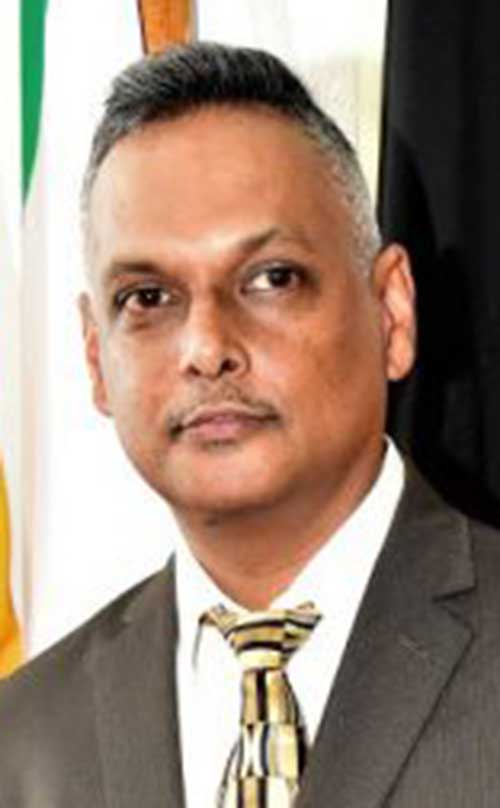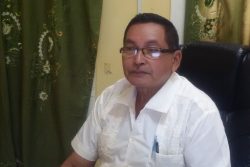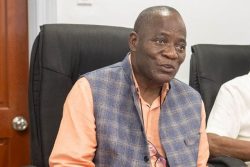While admitting the need for urgent and comprehensive action to address the COVID-19 pandemic, Guyanese jurist Dr. Arif Bulkan has said there are potential risks posed by the emergency measures being implemented in the region.
Bulkan made the observation recently during a presentation as part of a Faculty of Law of the University of the West Indies (UWI), Mona, Jamaica virtual forum on the implications of the COVID-19 pandemic in the context of public and private law.
Speaking on human rights concerns which he says arise in relation to COVID-19 in the Southern Caribbean, particularly Trinidad and Guyana, Bulkan noted that there are controversies which have taken centre-stage regarding restrictions that have been implemented and which he said impact both socio-economic and civil and political rights.
He said one has to examine how these measures should have been implemented, their foundation and legality, as there are certain risks and benefits associated therewith.
According to Bulkan, the government’s handling of COVID-19 in Trinidad must be applauded, although he also pointed out that the responses in both Trinidad and Guyana have not been without challenges.
The twin-island republic was free of cases for two weeks but there was recently one imported case. Prior to this case, there had been no one in hospital with COVID-19. On the other hand, cases in Guyana continue to rise.
Some of the controversies, Bulkan said, surround the “stay at home” orders severely restricting liberty and the police’s authority to restrict movement.
He said the obscurity lies in the basis of the orders, while noting that directives were not issued during any officially declared state of emergency nor pursuant to legislation but rather by executive decree/regulation.
He said that while regulation is a form of legislation, it is delegated, so that they are made in a sense by persons delegated by Parliament without any safeguards that would accompany legislation made in Parliament.
As a result, he said, there are people who challenge these orders.
He noted that orders which stipulate the closure of all but essential businesses, which have grave socio-economic implications for both employers and employees , are also being challenged.
Bulkan said that while there are popular slogans, especially on social media, that “we’re all in this together,” we are not as the pandemic has not impacted everyone equally.
Referencing statistics from the Inter-national Labour Organisation (ILO), Bulkan said that 1.6 billion people in the world’s informal economy have been affected, and for them the choice is either death from the virus or death from starvation.
He said the region has also been affected by some of the measures implemented and especially workers in the airline and tourism industries, among others.
He observed that the closure of roadside food vendors initially in Trinidad and not more formal establishments had the potential of indirectly being discriminatory, while the closure of the border has impacted on the rights of nationals to enter their own country.
He said that in Guyana there are concerns about indigenous communities and the responses in relation to them partly because of their remote location and inaccessibility.
Given these concerns, Bulkan questioned “whether to derogate or not,” against the backdrop of whether these measures should have been taken instead of the declaration of a state of emergency.
Not absolute
He explained that rights and individual freedoms are not absolute, which, therefore, allows for “measures in the normal course of things” that limits them. He also said that in the context of a pandemic, these can be limited, but “provided that they are being done pursuant to legitimate restriction of rights. In other words by legislative measures that are proportional.”
The same principle, he said, applies under international law. He said that there are therefore means of limiting rights which go beyond emergency measures once certain procedures are followed, while adding that it is for this reason that the UN Human Rights Committee repeatedly urged that you eschew emergency measures.
Despite all this, Bulkan said, there are risks of Cabinet-driven exceptions to fundamental rights to the extent that it risks normalising exceptional powers, so that while implementation of the measures may have been derived from good intentions, they may still be unjustified. He said that this is possible in the absence of any oversight or supervision.
Against this background Bulkan then pondered a series of questions, one of which was “can ordinary limits associated with applicable rights support indefinite restrictions or restrictions that keep getting extended from month to month?”
He further asked whether they have been properly formulated and defined so that persons know exactly what they can and cannot do.
To be considered also, he said, were whether economic measures have been imposed with full consideration of their direct and indirect effects, including on those in the informal sector, and whether the measures have been scrutinised for potentially discriminatory impacts.
He also questioned whether the restrictions have been scrutinised for potential overreach, raising the concern, among others, of persons who might be “locked in with their abusers” because of the stay at home orders.
Bulkan said that these are issues plaguing not just Trinidad but the region as a whole, while noting that even in the most well-intentioned circumstances, there are risks which can be exacerbated by the absence of participatory modes of government.
He said that while he is not advocating for the formal declaration of a state of emergency, there are safeguards which go along with such a move, especially where there is need to extend measures of restrictions beyond a particular time.
On this point, he said that there are significant checks and balances which would be provided and for which there would be no derogation of rights. He said that chief among the safeguards is parliamentary oversight, and the inclusivity, rigour and transparency which are an inextricable part of that process.
He concluded that what is missing when there are regulations drafted by the administration and then just told to the public is the participatory nature of representatives coming together. With bi-partisan initiatives debated in parliament, he said, they are more likely to be thorough, comprehensive and more subject to scrutiny and refinements.
“Where they are broadly agreed upon, they are likely to elicit greater trust and buy-in from the population,” Bulkan said, while emphasising the need for not only parliamentary oversight, but also judicial supervision.
He said that no one can deny the extraordinary nature of the pandemic and the need for urgent and comprehensive action, but that as the need for measures go on indefinitely, “we have to be at the same time mindful not to let exceptional measures become the new abnormal.”









